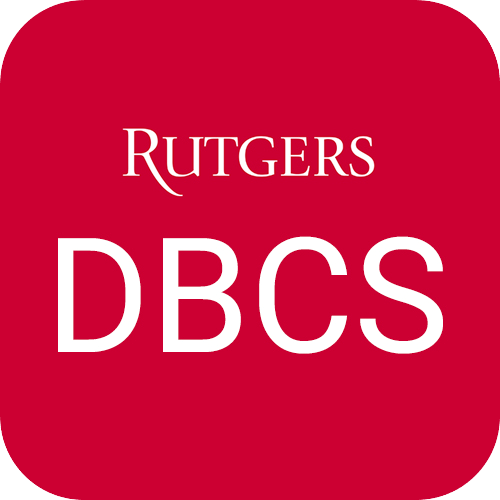| Education | A.B. Harvard, 1933; study at Trinity Coll., Cambridge, 1931-2. |
| Professional experience | Reporter, New York Herald Tribune, 1933-5; writer, Time, 1936-49; instr. literature, Sarah Lawrence, 1946-53; Princeton, 1950-1; fellow, Sch. Letters, Indiana U., 1952-85; vis. prof. Notre Dame, 1957; U. Washington, 1961; Mt. Holyoke, 1964; Harvard, 1964-5; Boylston Prof. Rhetoric Harvard, 1965-81; Guggenheim fellow, 1953, 1971; Shelley Award Poetry Society of America, 1955; Bollingen Prize for trans., 1961; Landon award for trans., 1976; Ingram Merrill Lit. Award, 1978; fellow, AIAL (award 1957); AAAS; chancellor Academy of American Poets, 1968. |
| Publications | Poems (New York, 19/5); A Wreath for the Sea (New York, 1943); In the Rose of Time (New York, 1956); The Aeneid, trans. John Dryden (ed.) (New York, 1965); Collected Short Prose of James Agee (ed.) (Boston, 1968); Spring Shade: Poems 1931-70 (New York, 1971); Enlarging the Change: The Princeton Seminars in Literary Criticism, 1949-1951 (Boston, 1985);Translations: Oedipus at Colonus (New York, 1941); “Selections from the Georgics of Vergil,” trans, with S. Palmer Bovie in Classics in Translation, 2:213-8; Homer. The Odyssey (Garden City, NY, 1961); Paul VaUry. Three Verse Plays, with David Paul, Bollingen Series 45:3 (New York, 1960); St. John Perse, Chronique and Birds (New York, 1961-6); Homer. The Iliad (Garden City, NY, 1974); Virgil. The Aeneid (New York, 1983);with Dudley Fitts: Alcestis of Euripides (New York, 1936); Antigone of Sophocles (New York, 1939); Sophocles Oedipus Rex (New York, 1949). |
| Notes | In the long, distinguished history of English translation from the classics, as we move from the Elizabethans to the Augustans, to the Victorians and the present, each translator attempts to bring us closer to Latin and Greek antiquity. Yet it is Robert Fitzgerald, perhaps more than anyone else, who discards the neoclassical lens that had shaped our vision for generations, to reimagine the classical work itself. This he has done in at least two ways. First by insisting that nothing stand between himself and an ancient text but lexicons and commentaries—no literary filter whatsoever. Then by believing in the vitality of that text on the one hand, old as it may be, and in the vivid, modern performer it requires on the other. As he describes his favorite Greek poet, “A living voice in firelight or in the open air, a living presence bringing into life his great company of imagined persons, a master performing at his ease, touching the strings, disposing of many voices, many tones and tempos, tragedy, comedy, and glory, holding his auditors in the palm of his hand: was Homer all of this?” He doubtless was, and so is his translator Robert Fitzgerald. And the life of his performances, responsive both to ancient poetry and the poetic idiom of his day, lend each of his works in turn their own authentic stamp: the tender, probing introspection of his Theban plays (Antigone and Oedipus the King, written in collaboration with Dudley Fitts, Oedipus at Colonus on his own), the haunting lyricism of his Odyssey, the martial and moral rigors of his Iliad, and the march of his Aeneid, elegiac yet energetic and ennobling too. Alone among English translators, Fitzgerald has performed, for his generation and beyond, the one Virgilian and the two Homeric epics. He wears a triple crown of verse translation still unequaled in our language. |
| Sources | DLB Yearbook 1980: 201-8; Robert Fitzgerald: The Third Kind of Knowledge: Memoirs and Selected Writings, ed. Penelope Laurans Fitzgerald (New York, 1993); WhAm 1984-5:1050 |
| Author (entry) | Robert Fagles |
 Rutgers Database of Classical Scholars Est. 2018expand_lessThe Rutgers Database of Classical Scholars (DBCS) is a database of classical scholars that is owned and operated by Rutgers University. It is a project within the Department of Classics at the School of Arts and Sciences in New Brunswick, NJ. Started in 2018, the database has over 900 records of scholars as of April 2020. The core set of records comes from a book by Ward W. Briggs, Jr., titled Biographical Dictionary of North American Classicists.
Rutgers Database of Classical Scholars Est. 2018expand_lessThe Rutgers Database of Classical Scholars (DBCS) is a database of classical scholars that is owned and operated by Rutgers University. It is a project within the Department of Classics at the School of Arts and Sciences in New Brunswick, NJ. Started in 2018, the database has over 900 records of scholars as of April 2020. The core set of records comes from a book by Ward W. Briggs, Jr., titled Biographical Dictionary of North American Classicists.





